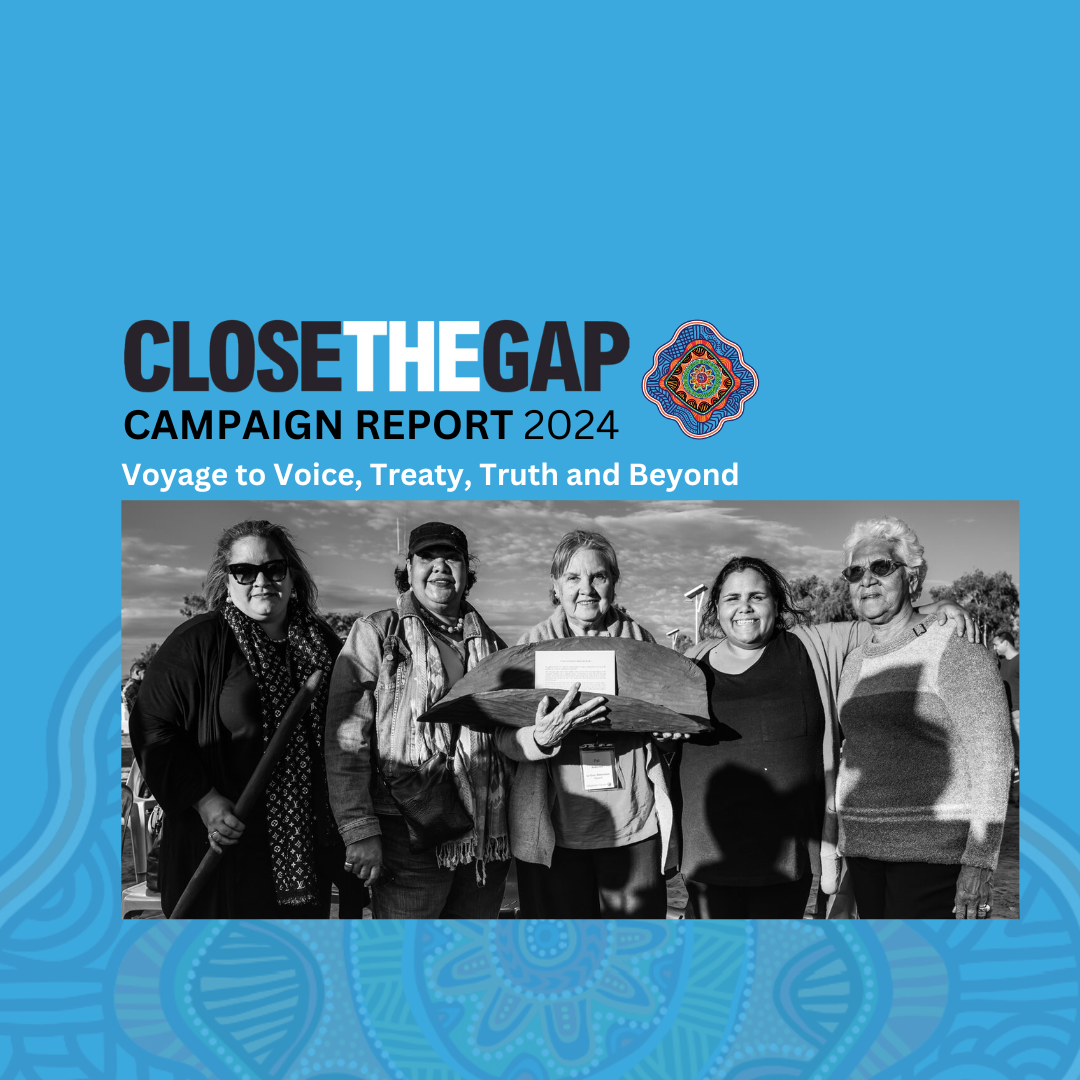Lowitja Institute calls on governments to hasten action to close the gap

The Close the Gap Campaign today urges Australian governments to accelerate action to realise the objectives of the National Agreement on Closing the Gap following the unsuccessful call to enshrine an Aboriginal and Torres Strait Islander Voice into the Australian Constitution.
The newly published Close the Gap Campaign Report 2024 delivers a set of recommendations providing a pathway towards achieving the National Agreement’s goals. Key among these is a call to implement the four Priority Reforms in all jurisdictions, which would include addressing recommendations of the Productivity Commission’s 2024 Closing the Gap review.
Prepared by Lowitja Institute for the Close the Gap Campaign, the report is being released in Canberra ahead of National Close the Gap Day. The launch provides an opportunity for Aboriginal and Torres Strait Islander community leaders, campaign members, and Parliamentarians to reflect on the year that has been, and to refocus on the tasks ahead in the pursuit of our wellbeing, sovereignty, and self-determination. Speakers include representatives of the campaign and organisations profiled in the report.
Lowitja Institute Chair Selwyn Button said the Close the Gap Campaign 2024 Report: Voyage to Voice, Treaty, Truth and Beyond refocuses the narrative on our peoples’ strengths and successes, showcasing an unwavering commitment to our communities’ wellbeing.
‘In reflecting on the Referendum year, this report doesn’t re-analyse polling data or linger on political parties’ spin,’ Mr Button said. ‘It’s not another longform newspaper think piece. Rather, we focus on the incredible strength, dedication, and creativity our communities showed during this year – and the enormous value we continue to place on the Uluru Statement from the Heart.
‘This report looks forward, recommitting to doing everything we can for our future generations, and highlighting to the rest of the Australian community just how widespread Blak excellence – and Blak resilience – really are.’
Despite the setbacks we have encountered, the past year has seen Aboriginal and Torres Strait Islander individuals and organisations work tirelessly to push for better outcomes and recognition for our communities. The report includes nine case studies highlighting the work of outstanding organisations in our communities which have shared their journey and successes to closing the gap.
While our peoples work towards improving health outcomes and creating opportunities for leadership and empowerment, the report calls on governments to progress the objectives of the Uluru Statement from the Heart by advancing Voice, Treaty and Truth mechanisms in their jurisdictions; on political parties to renew and strengthen their commitments to undertaking truth-telling, representation and agreement-making; and for Australians to undertake their own processes within organisations, institutions, professions, and communities to enact the objectives of the Uluru Statement.
The Close the Gap Campaign Report’s 22 recommendations go towards strengthening the cultural, social, and political determinants of health, which would, in turn, pave the way for improving health outcomes and meeting social-economic targets in the National Agreement.
Further recommendations include funding for the establishment of a national Aboriginal and Torres Strait Islander Coalition on Climate and Health and support the First Peoples Disability Network’s call for greater inclusion of disability in the National Agreement, and greater cultural safety in the National Disability Insurance Scheme.
‘Our recommendations show governments and the wider Australian community that there is much to be done, and we don’t intend to slow down,’ Mr Button said. ‘The National Agreement on Closing the Gap is more important now than ever, and governments need to turn their promises into action – centring our voices and knowledges, sharing power with our communities in genuine partnership, embedding cultural safety and anti-racism.’

